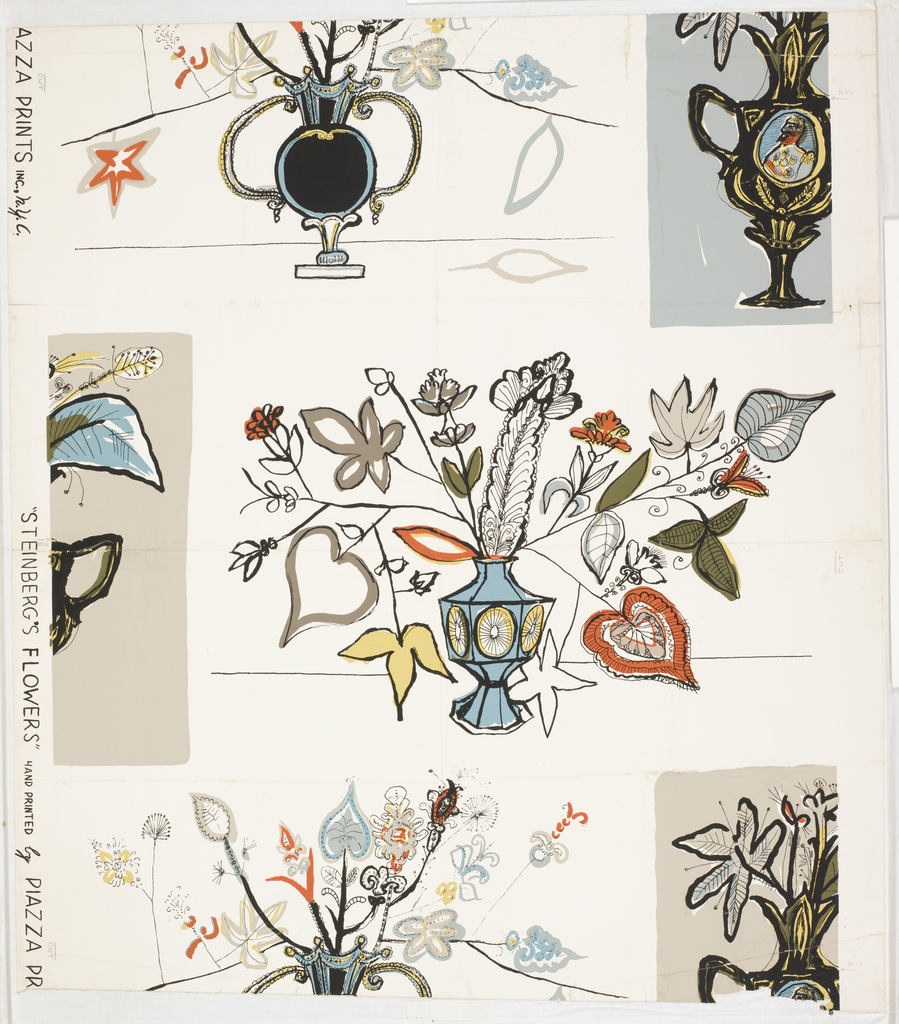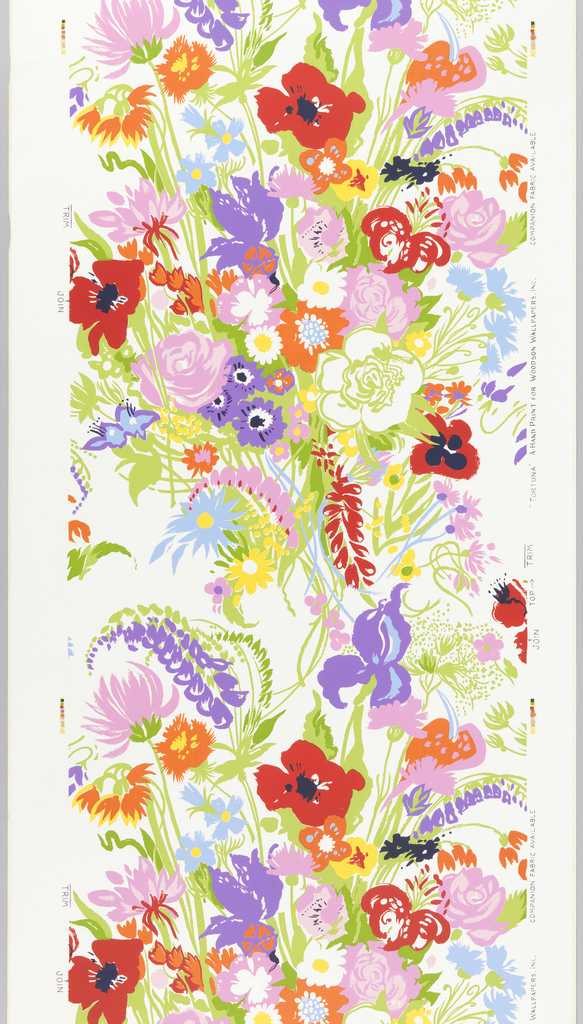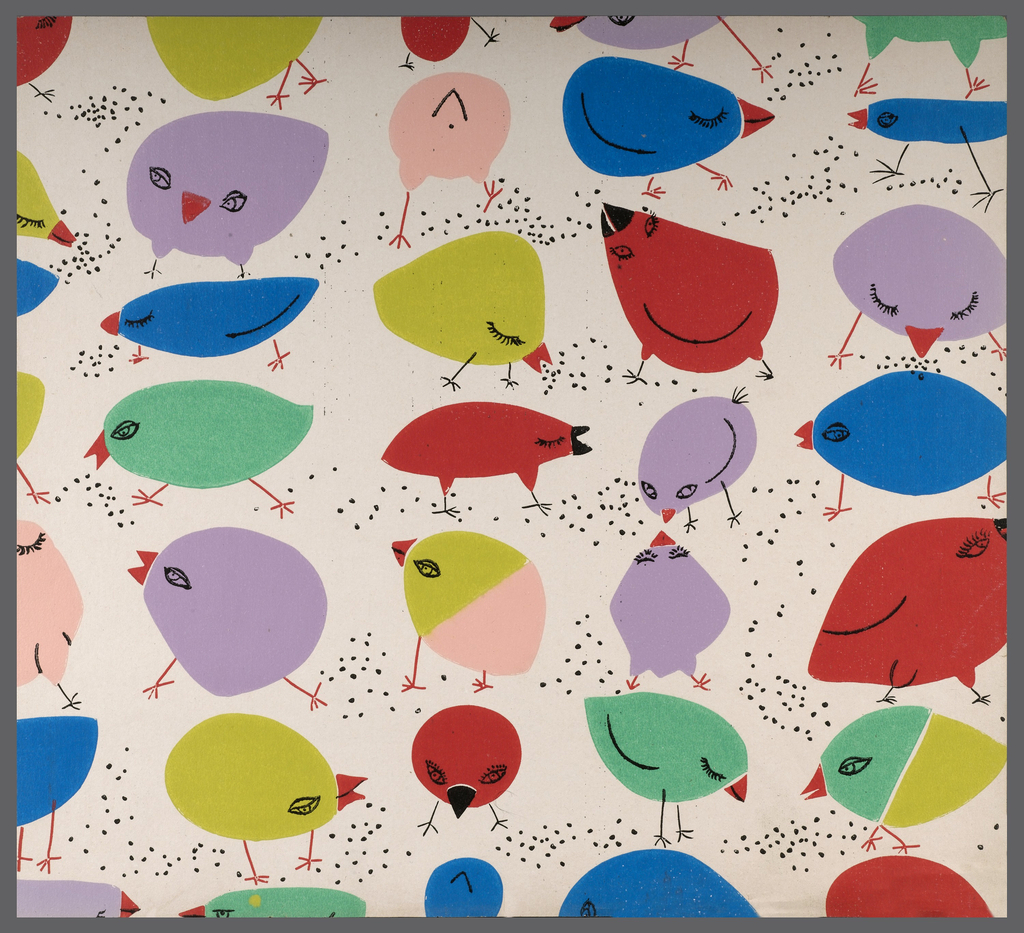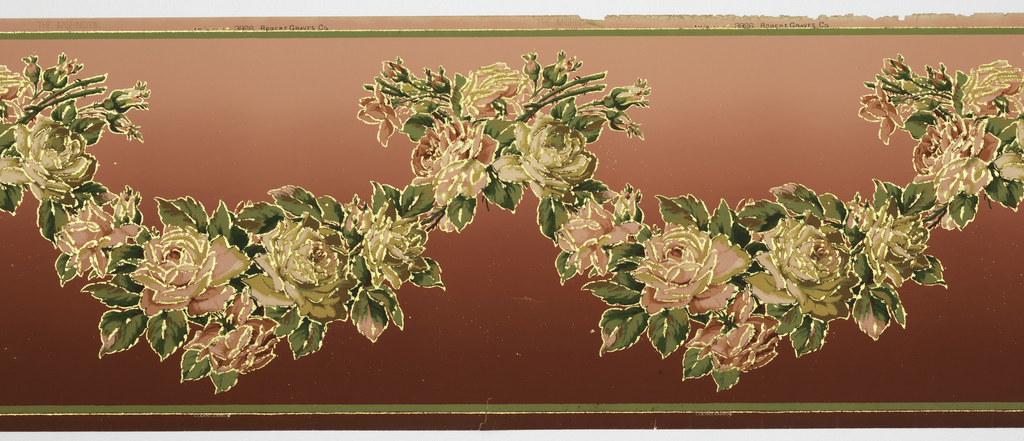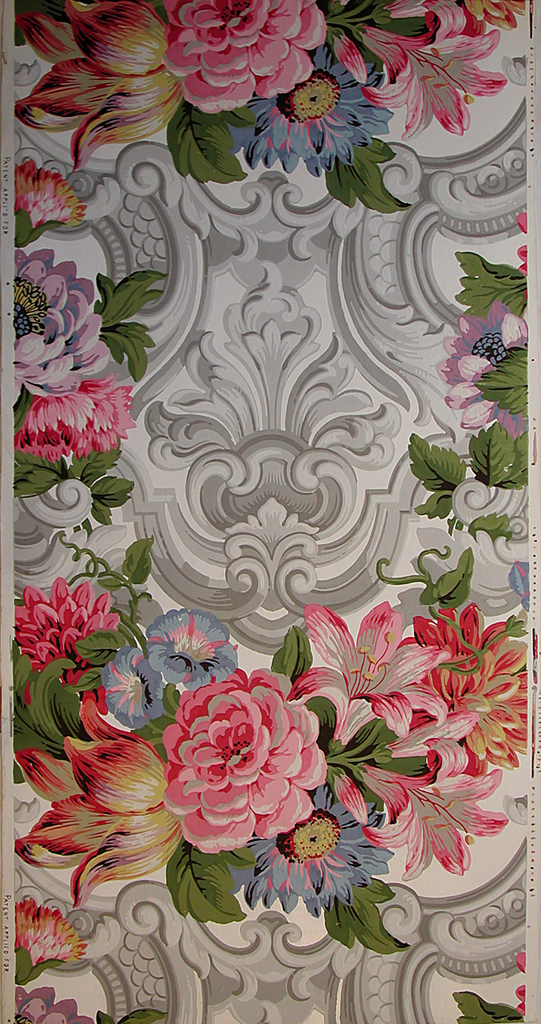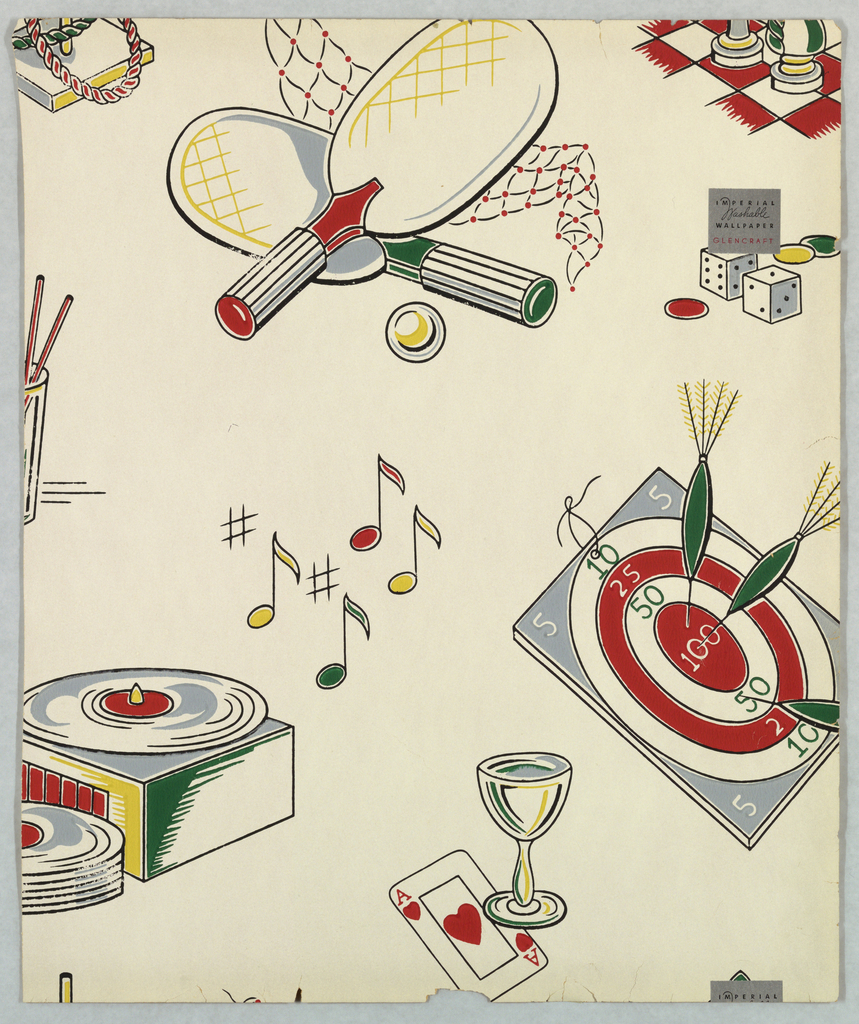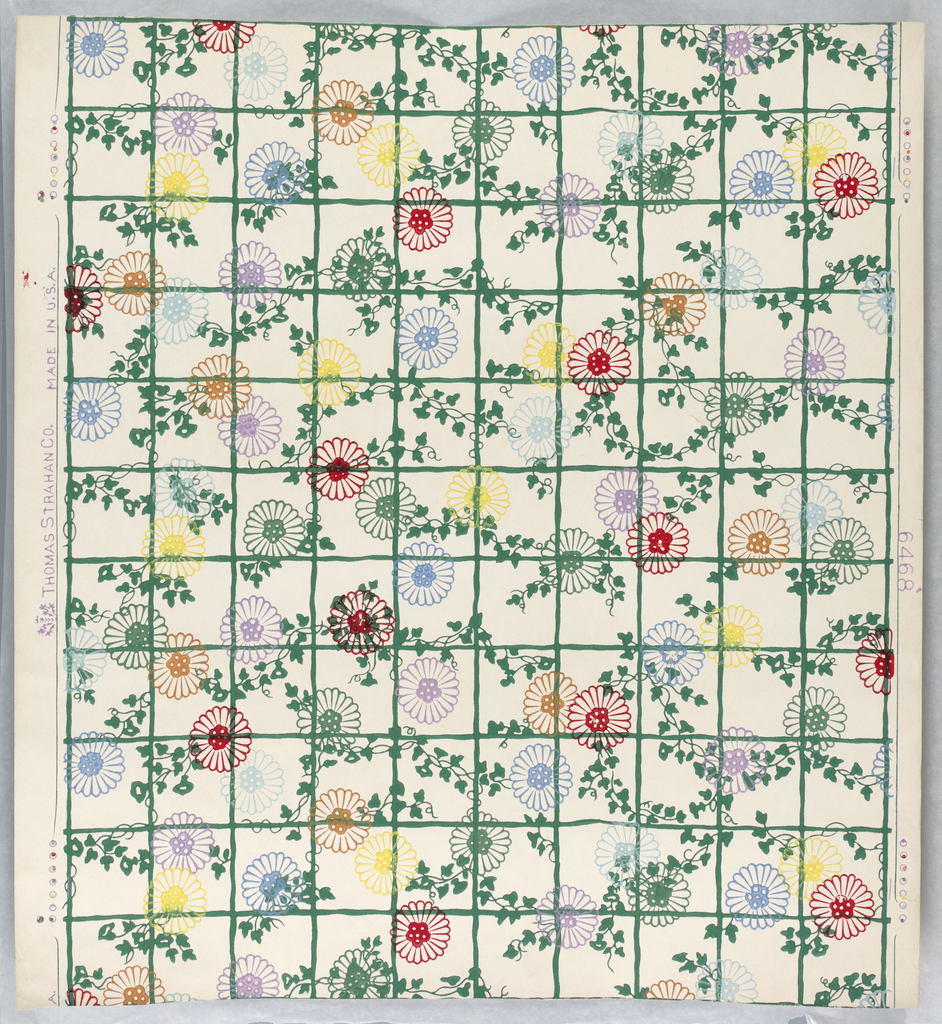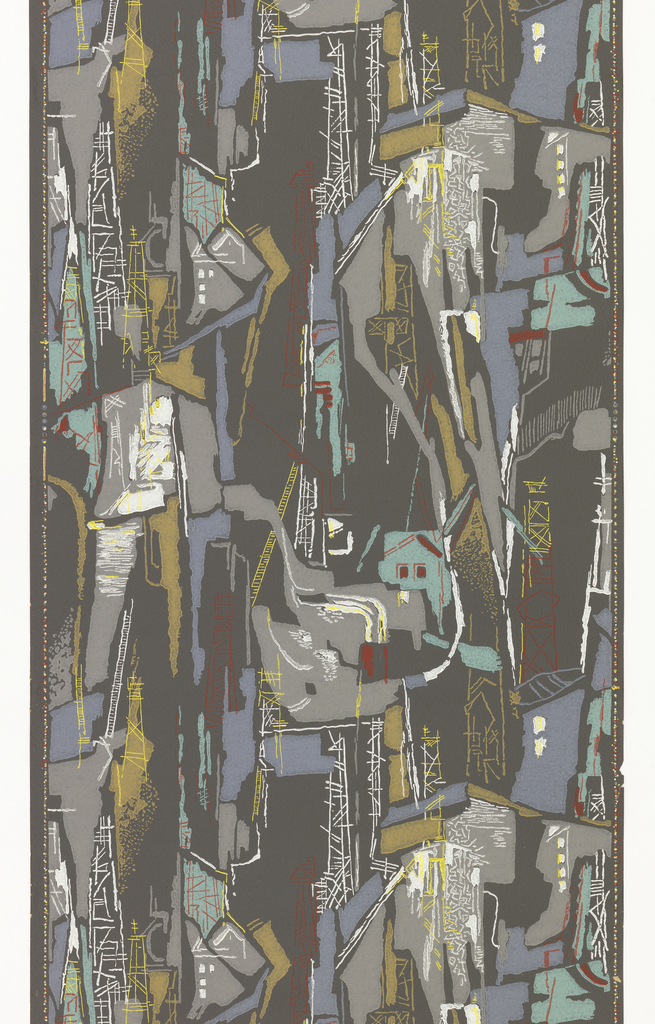This sidewall was designed by Saul Steinberg (1914-1999), a Romanian/American artist much loved for the dozens of covers and twelve hundred cartoons he drew for The New Yorker. Here, his characteristic ink-work has been expertly copied by the screen printing processes of Piazza Prints, who manufactured this paper c. 1950-1955. Against a white ground, widely-spaced...
This spring is extra-special at the Cooper Hewitt because the garden is completely renovated and once again open to anyone who needs a nice place to sit on a sunny afternoon. In anticipation of fun times and fair weather, we wanted to feature this vibrant floral wallpaper that presents its own take on 1960s “flower power.”...
Wallpaper, like all design, can be a powerful tool for communicating a specific message. Take for example wallpapers printed during the French Revolution that portrayed ribbons of red, white and blue in support of the uprising. On this object, however, a message has been spelled-out right on top of the design, the pattern becoming a...
This adorable wallpaper was meant for a child’s room, and came to the museum within a collection of samples by German manufacturer Marburger Tapetenfabrik. In creating this pattern the designer successfully manipulated a faddish aesthetic into something that remains pleasing and relevant well beyond its manufacture date. Little birds are represented by blocks of color...
Robert Graves Co. was founded by a Brooklyn-based Irish immigrant, and was one of the most successful wallpaper manufacturies in the United States from the 1860s to the 1920s. This wallpaper frieze was made by the company c. 1905-1915, and would likely have been marketed with a coordinating sidewall and ceiling paper. It features a...
This sidewall was donated to the Cooper Hewitt by D. Lorraine Yerkes in 1941, along with several dozen other antique and contemporary wallpapers from her collection. Ms. Yerkes was an independent decorator, and founding member of the American Institute of Decorators, which still exists today as the American Society of Interior Designers. She ran her...
This wallpaper sample comes from a book put out by Imperial Wallcoverings in 1948. It would have been used in a family room or den—spaces that were relatively new concepts at the time. For many young men and women settling down in post-war America, a casual home life that revolved around leisure time with the...
Thomas Strahan Co. was a prolific American wallpaper manufacturer that is well-represented in the Cooper Hewitt’s collection. Mr. Strahan was a successful retailer of wallcoverings, and also had a stint as mayor of Chelsea, Massachusetts. He founded his company in 1866 after becoming frustrated that “he could not obtain wall papers approaching his decorative standards.”...
In the mid-twentieth century, German wallpaper company Rasch marketed wallpapers designed by noted contemporary artists to the American public. The product line was called the “International Artists Collection,” and appealed to consumers who wanted their homes and offices to reflect cutting edge of contemporary art. Explaining the creative motivation behind this partnership of artist and...
